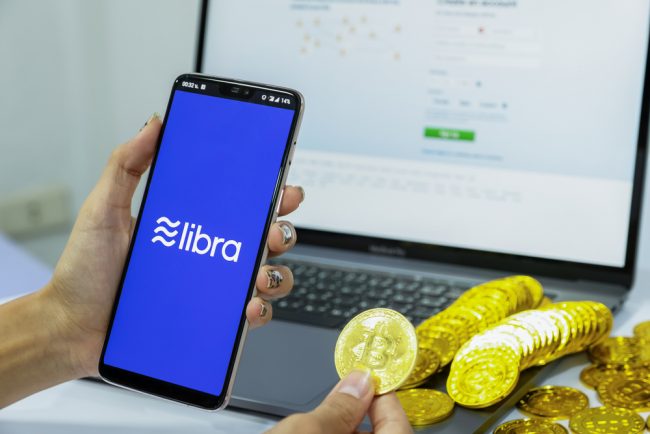
Credit unions need to double down on data integration as a first step to prepare for competition from Facebook and other tech giants in the fields of payments and loans, according to a Filene report released Thursday.
In June, Facebook announced its intention to create Libra, an international cryptocurrency aimed at the 1.6 billion people in the world who are unbanked—nearly half of all adults worldwide, especially women in developing countries.
Recommended For You
The company's ability to follow through with a plan of such massive scale is underscored by the fact that 2.4 billion people in the world already use Facebook, according to the 10-page report from Filene Research Institute, the credit union non-profit think tank in Madison, Wis.
If Facebook meets its goal of launching Libra in 2020, it will draw upon some of the nation's 120 million credit union members, and many more potential members. As a result, competition will increase for credit unions, especially smaller ones, according to the report's author, Edwin Mach, a board member of Meriwest Credit Union, San Jose, Calif. ($1.6 billion in assets, 84,682 members).
"Facebook imagines a world where regardless of your socioeconomic status or geographic location, anyone with a mobile phone will be able to find, pay, and receive money through Facebook and associated applications such as WhatsApp (which Facebook owns)," Mach said.
"So far, Facebook's plans sound potentially genius: a global currency available to almost anyone, conveniently operating on the largest online social network in the world, with the possibility to scale a wide range of other financial services."
But then there are political barriers that include Congressional Democrats, President Trump, SEC officials and Fed Chairman Jerome Powell. Powell said in July that Facebook should not create Libra without satisfying "serious concerns" around money laundering, consumer protection and financial stability.
Facebook's announcement of its plans was followed by congressional hearings in July. U.S. Sen. Brian Schatz, D-Hawaii, questioned Facebook's competence in light of its problems in other spheres. "Maybe before you do a new thing you should make sure you have your own shop fixed."
David Marcus, a former PayPal executive who is in charge of Facebook's Libra plans, through its cryptocurrency plans, said Facebook would not move ahead with the project until the concerns of regulators are answered.
"We've made mistakes in the past," Mr. Marcus said. "We have been working, and are working hard to get better."
But Facebook's bigger concern might be opposition abroad. The European Commission has begun investigating the Libra project and the group backing it amid concern the currency will be detrimental to competition.
Libra is backed by a 28 organizations that have committed at least $10 million each to form the Libra Association, a not-for profit organization based in Geneva, Switzerland. Their digital coin will be pegged against a basket of existing, real-world currencies and backed by a reserve of liquid assets provided initially by the founders, and eventually by users themselves.
"Although critics compare it with Bitcoin, when launched, Libra will stand apart because it will be packaged, priced and controlled—at least in part—by Facebook," Mach said.
And if Facebook gains even a 1% toehold in the global payments market, it would be adding about $19 billion a year in revenue, or a third of what it generated in 2018.
Besides its massive user base, Facebook also has the advantage of having details about the user's online profile and social history, financial history, and other information that may provide enough data to underwrite loans.
And even if Facebook fails, others who might try include Amazon, Google or Apple.
One of the key advantages of these companies is their network effect: their ability to bind users to their platform because they have created a network of social contacts, built a store of data from email to photos, and developed deeply engrained habits to use these tools for daily tasks and pleasures.
"Once you are on a platform, it is difficult to get off the platform," Mach said.
Credit unions have the challenge of being a swath of islands. There are about 260 million credit union members in the world, including about 120 million in the United States belonging to about 5,400 institutions.
"It is difficult to reach them all at once since they operate as separate entities, and they lack a common platform for developers, services, and applications. Facebook only needs to write code once and press a button to reach its 2 billion users, but for credit unions to do the same would be impossible," Mach said.
To prepare against this challenge, Mach recommends:
- Evaluate ways for credit unions to connect more easily, safely, quickly, and efficiently to minimize communication costs between members and institutions. "This new platform should not only be multi-party, but multi-currency—digital, crypto-, or otherwise. Data governance and integration is the first step."
- Radically re-invent themselves. "In order to stay relevant, focus on your bread and butter, but also explore adjacent markets, innovate your service delivery model, and deepen your value chain."
- Partner with a potential disruptor or build your own. Partnering with a potential disruptor can be beneficial because "technology companies need the expertise and regulatory capacity of financial institutions, and the banking infrastructure (think: platform) gains additional revenue by allowing additional applications and expanded offerings."
© Touchpoint Markets, All Rights Reserved. Request academic re-use from www.copyright.com. All other uses, submit a request to [email protected]. For more inforrmation visit Asset & Logo Licensing.







